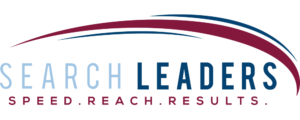Unlocking Data-Driven Innovation
In the rapidly evolving technological landscape, data science is a crucial driver of innovation, efficiency, and competitive advantage for businesses. While discussions around artificial intelligence (AI) and large language models (LLMs) often capture widespread attention, the foundational elements of traditional data science continue to be essential for companies aiming to leverage their data fully. Here, we provide an introduction for companies interested in employing data science, especially those building robust internal data science teams and identifying projects aligned with their business objectives.
The Crucial Role of Data Science in Business
Data science, through rigorous analysis and interpretation of complex digital data, is instrumental in informing decision-making processes, optimizing operations, and uncovering new market opportunities. Unlike the more specialized domain of LLMs, traditional data science offers a wide range of applications, from predictive analytics to customer segmentation, that are customizable to meet the specific needs of any business.
Building Your Data Science Team
Assembling a data science team is critical for leveraging data to uncover business insights and drive innovation. For companies embarking on this journey, here’s a look at the essential data science positions to recruit for:
- Data Engineer: Key for designing and maintaining a robust data infrastructure that supports large-scale analysis.
- Data Scientist: Experts in extracting actionable insights from complex data sets through statistical analysis and machine learning.
- Machine Learning Engineer: Specialists in developing algorithms and models for predictive analysis and decision-making.
When building your team, focus on creating a balance of skills that complement each other, ensuring a collaborative approach to harnessing the full potential of your data.
Setting Up Your Data Infrastructure
An organized data infrastructure serves as the backbone of effective data science initiatives. Companies should aim to establish a seamless flow of data that is accessible, secure, and scalable. Accomplishing this involves evaluating and improving data collection methods to capture comprehensive datasets, implementing robust data storage solutions that prioritize security and accessibility, and developing a systematic approach to data management. Ensuring data is clean, well-organized, and readily available for analysis is key.
Choosing Data Science Projects Aligned with Business Goals
Driving value through data science initiatives requires carefully selecting projects that directly contribute to the company’s strategic objectives. Examples of the type of projects this might include:
- Develop predictive models to improve inventory management and reduce operational costs.
- Utilize customer data to personalize marketing efforts, enhancing customer engagement and increasing sales.
- Analyze operational data to identify inefficiencies and streamline processes for better productivity.
By aligning data science projects with business goals, companies can ensure that their efforts yield tangible benefits and drive strategic advancement.
Navigating Challenges and Embracing Ethical Considerations
Adopting data science comes with challenges, including ensuring data quality, integrating disparate data sources, and managing data privacy and security complexities. Ethical considerations around data use and algorithmic decision-making become paramount as companies delve deeper into data analysis. Establishing clear guidelines and practices to navigate these challenges is crucial for responsible and effective data use.
Start Your Data-Driven Journey Now
For companies ready to leverage data science, the journey toward data-driven transformation is ongoing, marked by continuous learning, adaptation, and growth. Staying abreast of advancements in data science and technology, fostering a culture of innovation, and continuously refining data strategies are essential for sustaining long-term success. By strategically navigating the challenges and opportunities data science presents, companies can unlock new possibilities for innovation, efficiency, and growth, securing their place in the rapidly evolving business landscape.
If you require top talent for your company, don’t waste any more time and resources. Let our team at Search Leaders help you find the perfect candidate for your open position.




